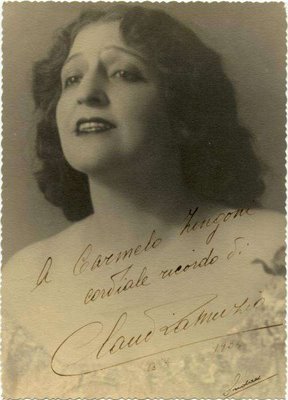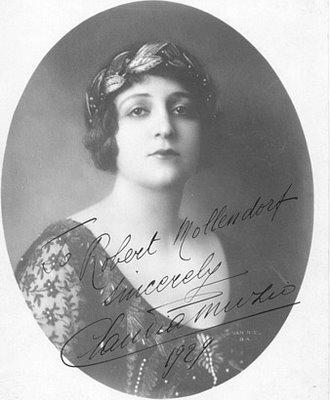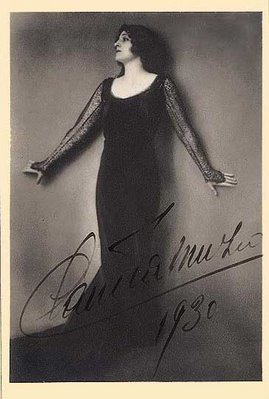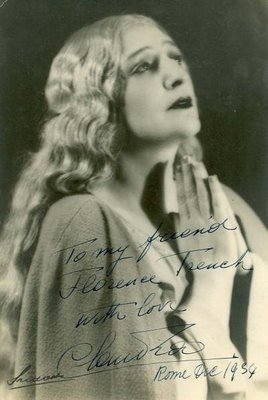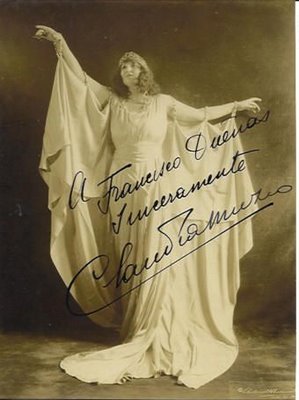She's BAAA-AAACK!
I have been doing a little online research on her this morning and I was delighted to discover that an enlightened youtube user has reposted the “Sempre libera” from her 1981 Met Traviata.
Here is a review from the New York Times (March 19, 1981) of her Violetta. Okay, so it's by Donal Henahan, who often had his head up his butt. But even he got it right sometimes:
“It is unlikely that there is a better Violetta now on the world's stages than Ileana Cotrubas. In her first Metropolitan appearance as the pathetic courtesan, she gave a transfixing performance. A singing actress of great imagination and temperament, she was able to exploit the full range of emotions in her first-act scene, and unless a Violetta does that the jig is up. From the first puzzled and tentative notes of ‘e strano’ straight through to the almost delirious brilliance of ‘sempre libera’ she drew one long, unerring curve of vocal and dramatic excitement. She was not, like some Violettas, a case of conspicuous consumption throughout the night, hacking and wheezing incessantly. She coughed a little and fainted when necessary, and generally played on our sympathy like a virtuoso.”
Well, judge for yourselves.
I also found “Caro nome” from her Met Gilda a few years before that (1977, I believe). She is less perfect here; the voice is a little strained on the top, but her musicianship is always paramount. This performance is preceded by an adorable interview in which she present quite a winsome side to her personality than the adamant, demanding one that we acknowledge as well.
Yet she was and is demanding because her standards are SO high. As evidence, I submit her recording of the “Et incarnatus est” from the Mozart C Minor Mass. If this were the only evidence we had of her artistry, she would be assured of her place among the great Mozarteans, not only of recent years, but of all time.
Finally, I found this quote from an interview in which she rages against Regietheater. I espouse this viewpoint myself, so of course I quote it here:
“I teach both technique and interpretation, because you cannot separate them. I think it is nonsense to say that you have to develop a rock solid technique first and then think about interpretation later. You have to develop both of them at the same time. If you explain technique too clinically, as is often done today, you will forget everything about ‘singing,’ and this is the worst disaster you can have. I have to warn American singers about this especially. Often they are fantastic technically, but they lose all the emotion.”
Labels: et incarnatus est, gilda, ileana cotrubas, la traviata, mozart, regietheater, rigoletto, verdi, violetta, vocal technique
